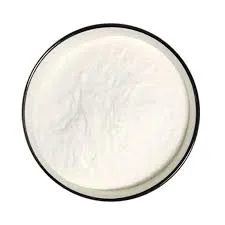
nov . 16, 2024 06:34 Back to list
Innovative Solutions for High-Performance Medical and Healthcare Products
Understanding HPMC Products A Comprehensive Overview
Hydroxypropyl Methylcellulose (HPMC) is a widely used cellulose ether derived from natural cellulose through a series of chemical processes. Its unique properties make it a valuable ingredient across various industries, including pharmaceuticals, construction, food, and personal care. This article delves into the characteristics, applications, and benefits of HPMC products.
Characteristics of HPMC
HPMC is known for its exceptional water-solubility and thickening properties. It forms a clear, viscous solution when mixed with water, which makes it ideal for numerous applications. The degree of substitution, which indicates the number of hydroxyl and methoxy groups replaced by hydroxypropyl groups, significantly influences its properties. HPMC can vary from low viscosity to high viscosity grades, allowing for tailored applications depending on the desired consistency.
Additionally, HPMC is non-ionic, making it stable across a wide range of pH levels and ionic strengths. This stability ensures that it can be used in various environments without compromising its integrity. HPMC is also thermal-gelling, which means it can form a gel upon heating, providing further versatility for applications where gel formation is desired.
Applications of HPMC
1. Pharmaceutical Industry HPMC plays a crucial role in the pharmaceutical sector. It is widely used as an excipient in tablet formulations, where it functions as a binder, film-coating agent, and controlled-release agent. Its ability to create stable gel structures makes it effective in the production of capsules and as a thickening agent in liquid formulations.
hpmc products

2. Construction Industry In construction, HPMC is utilized as a thickener and water-retention agent in cement-based products, such as mortars and plasters. Its inclusion improves workability and enhances adhesion, leading to better performance of the construction materials. The water-retention properties of HPMC also allow for improved curing of the materials, ensuring stronger end results.
3. Food Industry HPMC is recognized for its safety and versatility in the food industry. It is often used as a thickening agent, emulsifier, and stabilizer in numerous food products, including sauces, dressings, and baked goods. Its ability to enhance texture and maintain moisture in food products is highly valued, making it a common ingredient in many processed foods.
4. Personal Care Products HPMC is also found in various personal care products such as lotions, creams, and shampoos. Its thickening properties improve the texture and application of these products, while its emulsifying capabilities help to maintain consistency and stability.
Benefits of HPMC Products
The versatility of HPMC products brings numerous advantages. They are non-toxic, biodegradable, and possess excellent emulsifying, adhesive, and thickening properties. This makes HPMC a preferred choice in formulations where sustainability and performance are priorities. Moreover, its ability to enhance product properties without altering the primary function adds to its appeal across multiple industries.
In conclusion, HPMC products play a significant role in diverse sectors, contributing to innovations and improvements in product formulations. As industries continue to seek efficient, safe, and effective ingredients, the relevance of HPMC will undoubtedly remain pivotal in driving advancements and meeting consumer needs.
-
Versatile Hpmc Uses in Different Industries
NewsJun.19,2025
-
Redispersible Powder's Role in Enhancing Durability of Construction Products
NewsJun.19,2025
-
Hydroxyethyl Cellulose Applications Driving Green Industrial Processes
NewsJun.19,2025
-
Exploring Different Redispersible Polymer Powder
NewsJun.19,2025
-
Choosing the Right Mortar Bonding Agent
NewsJun.19,2025
-
Applications and Significance of China Hpmc in Modern Industries
NewsJun.19,2025







